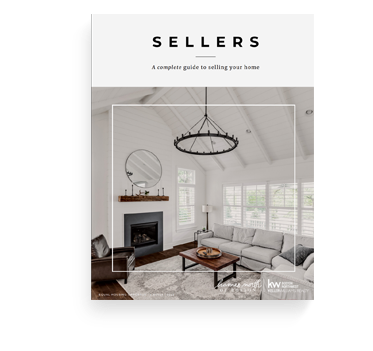Deciding Between Renting Out or Selling Your Home
.png?width=600&height=464&name=Copy%20of%20OH%20Sign%20In%20Sheet%20(4).png)
As you stand on the brink of a new chapter and contemplate the fate of your current home, the decision ahead looms large. Will you part ways with it and fund your next escapade, or entertain the idea of leasing it out for long-term financial gains?
This quandary is a familiar one for many homeowners, with no easy answer in sight. Whether you're enticed by the prospect of rental income or daunted by the responsibilities of being a landlord, there are numerous factors to consider.
Let's delve into some key questions that may help guide you in making the most fitting choice for your unique situation.
Is Your House a Good Fit for Renting?
Before taking on the responsibilities of a landlord, it's essential to evaluate if your current home is a good fit for renting. Consider factors like potential relocation, the demand for rentals in your neighborhood, or any necessary repairs that may be required before leasing out your property.
If any of these factors strike a chord with your situation, selling your home might be the most advantageous solution to consider.
Are You Ready for the Realities of Being a Landlord?
Managing a rental property isn't just about collecting rent checks. It's a time-consuming and sometimes challenging job.
For example, you may get calls from tenants at all hours of the day with maintenance requests. Or you may find a tenant causes damage you have to repair before the next lease starts. You may even have to deal with people falling behind on payments or breaking their lease early. Investopedia highlights:
"It isn’t difficult to find horror stories of landlords troubled with more headaches than profits. Before deciding to rent, consider talking to other landlords and doing a detailed cost analysis. You might find that selling your home is a better financial decision and less stressful.”
Do You Have a Good Understanding of What It’ll Cost?
If you're thinking about renting out your home primarily to generate extra income, remember that there are additional costs you’ll want to plan for. As an article from Bankrate explains:
- Mortgage and Property Taxes: You still need to pay these expenses, even if the rent doesn't cover all of it.
- Insurance: Landlord insurance costs about 25% more than regular home insurance, and it's necessary to cover damages and injuries.
- Maintenance and Repairs: Plan to spend at least 1% of the home's value annually, more if the home is older.
- Finding a Tenant: This involves advertising costs and potentially paying for background checks.
- Vacancies: If the property sits empty between tenants, you'll lose rental income.
- Management and HOA Fees: A property manager can ease the burden, but typically charges about 10% of the rent. HOA fees are an additional cost too, if applicable.
Bottom Line
To sum it all up, selling or renting out your home is a personal decision that depends on your circumstances. Whatever you decide, taking the time to evaluate your options will help you make the best choice for your future.
Make sure to weigh the pros and cons carefully and consult with professionals so you feel supported and informed as you make your decision. That’s what we’re here for.
Aug 13, 2024 11:59:00 AM









Comments